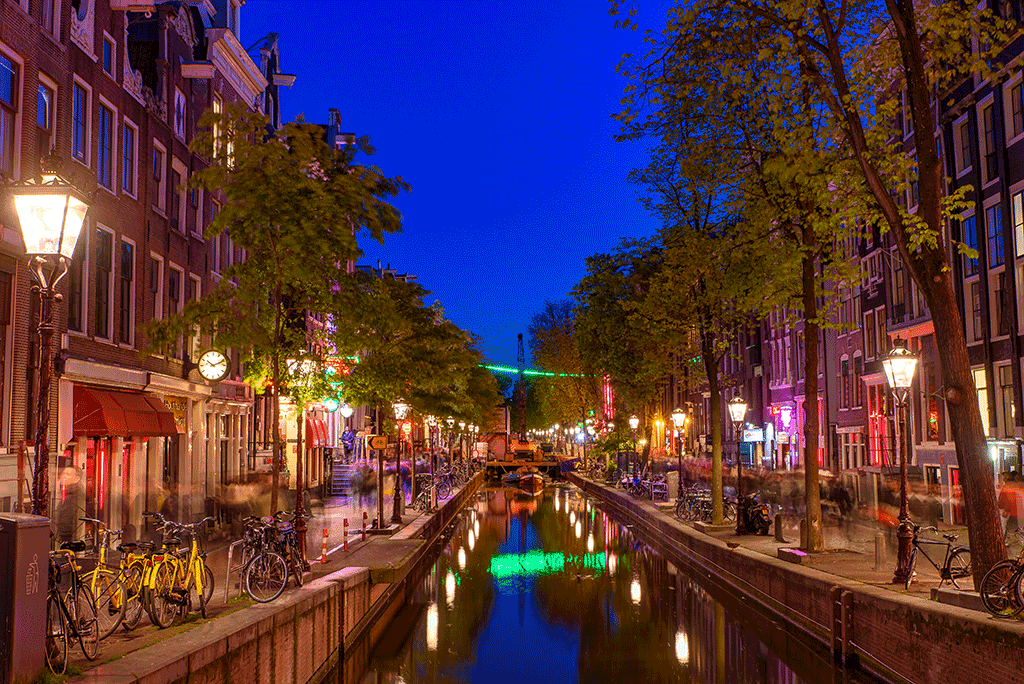Written by PSY-23
For many people, Amsterdam is one of the key locations globally when it comes to accessing cannabis relatively quickly and openly. From its coffee shops to its canals, it has been a significant destination for tourism and continues to draw people from all over the world today. However, cannabis is still a widely debated topic worldwide, with differing opinions on its medical and recreational use existing in all corners of the globe, and even in Amsterdam, there are questions over its recreational availability from some corners of Dutch society. In recent years, however, an increasing number of countries have been exploring the possibility of legalizing and regulating cannabis. Continuing to lead the way as one of the pioneers in this area, the Netherlands has recently doubled its commitment to cannabis and initiated widespread clinical trials to help develop the route towards its total legalization. However, many people are unaware of the complex history of cannabis in the Netherlands, including the key figures and influential individuals in the field or the multiple perspectives on the Netherlands’ clinical trials.
The Netherlands has long been associated with a liberal approach towards cannabis. In the 1970s, the Dutch government adopted a policy of tolerance known as the “gedoogbeleid,” allowing for the sale of small amounts of cannabis in specifically designated coffee shops. This approach aimed to separate the cannabis market from the hard drug market, reducing the harms associated with drug trafficking and consumption. In the minds of many people, the Netherlands represents a liberal-minded approach to cannabis that has been an inspiration to some of the more recent global developments.
As the global discourse on cannabis evolved, the Netherlands remained at the forefront of liberal drug policies. Prominent figures and organizations heavily influenced the country’s approach. One key figure in this context is Joop den Uyl, the Prime Minister in the 1970s. Den Uyl, a social democrat, was instrumental in implementing policies that separated the cannabis market from the illicit drug trade, highlighting his progressive stance.
Additionally, Derrick Bergman, a prominent Dutch activist, founded the organization ‘Weed Liberation Front’ (WHL) in 2008, advocating for the complete legalization and regulation of cannabis. This organization has significantly shaped public opinion and pushed for policy change within the Netherlands.
The Netherlands starting clinical trials to legalize cannabis has had significant impacts on various fronts. On a social level, it has revitalized debates about the potential benefits and risks associated with cannabis use. The trials have also allowed the government to understand the practical implications of legalization, such as regulating the supply chain, taxation, and public health measures. Economically, the cannabis industry in the Netherlands has experienced considerable growth. Studies of this kind should hopefully enable the country to further its progressive stance, and this has potential ramifications for the wider world. Legalizing and regulating cannabis can generate substantial tax revenue while reducing the costs associated with law enforcement and judicial proceedings. This economic benefit can be witnessed through the increase in employment opportunities and the creation of new businesses in the cannabis sector, along with the inevitable benefits of more taxation leading to more money for reinvestment in various social and health projects.
Moreover, the clinical trials have positively impacted medical research involving cannabis. The Netherlands has a well-established tradition of scientific research, and the trials have promoted a better understanding of cannabis-based medicines, their efficacy, and potential application in various medical fields. Building on these studies may also lead to the rapid development of other studies and peer-reviewed research papers.
Several influential individuals have contributed to cannabis legalization in the Netherlands. One such figure is Wim van de Donk, who served as the Commissioner of the King in the province of North Brabant. Van de Donk was a key driver in developing regional pilot projects to regulate cannabis cultivation, emphasizing the need for a controlled and legal supply chain.
Furthermore, Professor Arno Hazekamp, a leading Dutch cannabis researcher, has made significant contributions to the scientific understanding of cannabis and its constituents. His research on the medical properties of cannabis has helped shape the debate surrounding legalization.
When considering perspectives on cannabis legalization, it is important to acknowledge both supporters and critics. Supporters argue that legalization would allow for safer consumption, reduce the strain on law enforcement, generate tax revenue, and provide opportunities for medical research and potential breakthroughs. They point to successful examples from other countries that have legalized cannabis, such as Uruguay and Canada.

On the other hand, critics express concerns about the potential adverse health effects, particularly in vulnerable populations, such as adolescents. They raise questions about increased accessibility, usage rates, and potential long-term public health implications. Critics also argue that cannabis legalization could contribute to the normalization of drug use, leading to potentially harmful consequences. In response to this, it has been suggested that money from taxation could feed into education programs for young people in the hope of better informing them about the pros and cons of recreational cannabis usage. Teaching people about specific health benefits, different strains, moderate use, and where to get help if they are dealing with mental health issues could help sway some of these critical voices.
The Netherlands’ decision to embark on clinical trials to legalize cannabis has ignited discussions and debates on a global scale. The historical context, encompassing the intricate tapestry of events and circumstances that have unfolded over time, is the foundation for understanding current affairs. Key figures, those individuals who have emerged as prominent players in this ongoing endeavor, have left an indelible mark on the trajectory of cannabis legalization, and their actions, decisions, and influence have shaped the course of this movement, leaving an undeniable impact on society as a whole.
To fully grasp the complexities of this process, we must examine the positive aspects, such as the potential economic benefits and the medicinal properties that cannabis possesses, to gain a deeper understanding of the potential advantages that legalization can bring. Conversely, it is equally important to scrutinize the negative aspects, such as the potential for increased substance abuse and the challenges of regulating a previously illicit market.
In this intricate dance of analysis and contemplation, it becomes evident that the process of cannabis legalization is far from straightforward. It requires careful consideration of many factors, weighing the potential benefits against the risks. Only through a comprehensive scientific examination can we hope to navigate the path toward a well-informed and practical approach to cannabis legalization.
As the trials progress and their findings are assessed, the Netherlands and other countries can learn from this pioneering initiative. The potential for future developments in regulation, taxation, and medical research related to cannabis legalization makes it vital to continue monitoring and evaluating the outcomes of these clinical trials. Ultimately, this comprehensive approach ensures informed decision-making for both the Netherlands and other nations contemplating cannabis legalization, and it will be interesting to see where things go from here.

